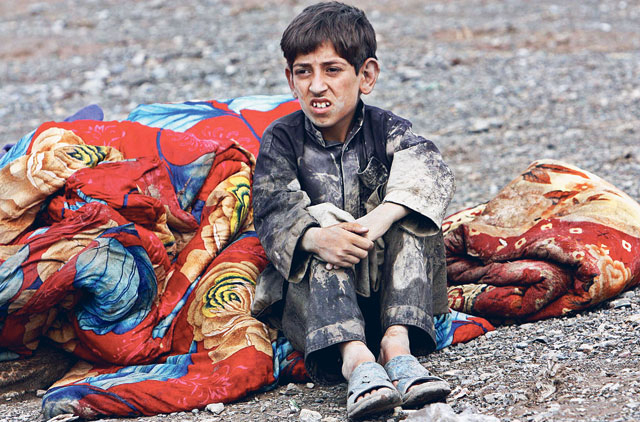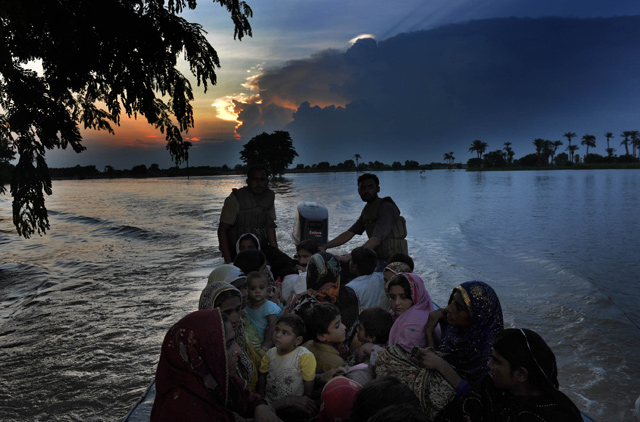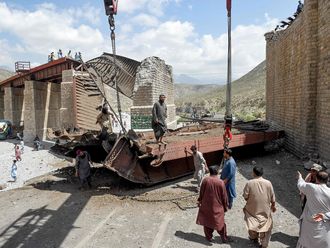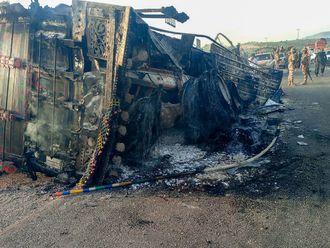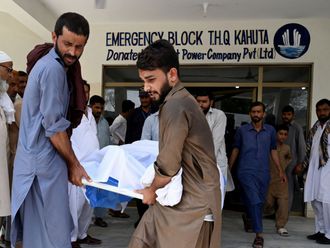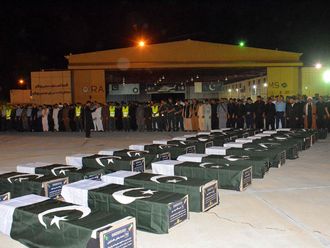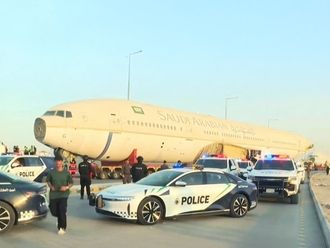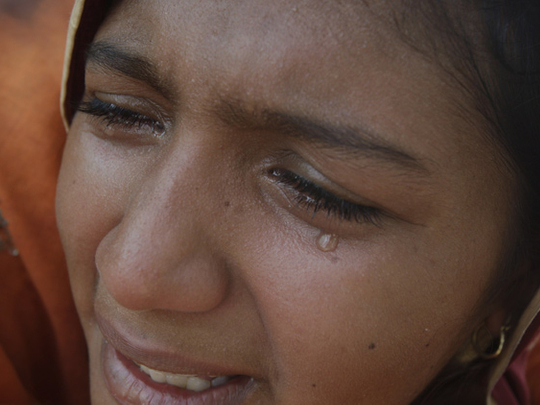
Muzaffargarh: President Asif Ali Zardari returned Tuesday to flood-ravaged Pakistan, where he faced a storm of criticism for visiting Europe as his country was gripped by what his government called the nation's worst natural disaster.
His arrival came as thousands fled a major city in central Pakistan threatened by swollen rivers, and as the Pakistani Taliban, which is allied to Al Qaida and is fighting for the overthrow of the Pakistani state, urged the government not to accept any Western aid for flood relief. Spokesman Azam Tariq said the group would itself fund relief efforts.
The Taliban have attacked Western aid groups in Pakistan and called for them to leave the country, saying they are trying to implement a Western agenda.
"Pakistan should reject this aid to maintain sovereignty and independence," Tariq said in a telephone call to an Associated Press reporter.
Amid the relentless rains, Zardari — an unpopular figure to begin with — took off for a visit to France and Britain. His aides said he had to undertake the trip for diplomatic reasons, especially in the UK, whose Prime Minister David Cameron had recently accused Pakistan of exporting terror.
But the timing of the trip struck a raw nerve among many who said Zardari should have stayed with his suffering people — even though the president, fearful of assassination, rarely makes public appearances in Pakistan anyway. The criticism was particularly harsh after reports that he'd visited his family's elegant chateau in France.
Zardari returned first to the southern city of Karachi and was expected back in the capital, Islamabad, today. He is set to meet with the chief ministers of the provinces to map out a rehabilitation programme, said Fauzia Wahab, spokeswoman for the ruling Pakistan People's Party.
In Punjab province, the normally bustling city of Muzaffargarh looked largely deserted yesterday after large numbers of people left following flood warnings the previous evening. Many men, however, stayed behind to guard homes and businesses.
"There is no doubt that our city is almost empty now," said Mohammad Saleem, 42, a shop owner who sent his wife and children to Multan city.
Staffing shortage
The local government hospital had staffing shortages because many doctors and other workers had decided to leave.
"We have put sandbags around our hospital to protect it from any possible floodwaters, but we do not know whether it will help," said Ashiq Malek, a hospital official.
The population of Muzaffargarh is around 250,000, said Hassan Iqbal, a senior government official in Dera Ghazi Khan district. The evacuation warning was issued only after authorities assessed that the floods could hit the city, Iqbal said.
"It may not happen, but there is a danger to the city," he told The Associated Press.
Pakistani Prime Minister Yousuf Raza Gilani has called the crisis the worst natural disaster in Pakistan's history.
The hardest hit region has been the northwest, which also is the epicentre of Pakistan's fight against Al Qaida and the Taliban. But as swollen rivers have flown south and east, Sindh and Punjab provinces have also been affected.
Rescue work has been hampered by ongoing monsoon rains, which have washed away roads and bridges. Six US helicopters sent from Afghanistan to assist in aid delivery and evacuations lost at least three days of flights because of the weather.


